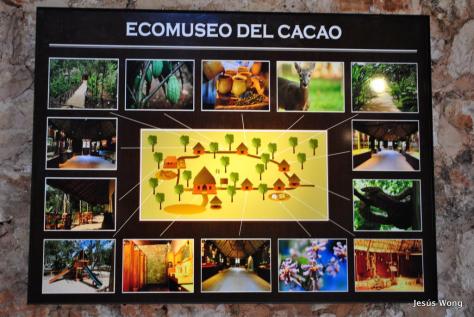Ticul, Mexico has a thriving chocolate plantation!
If you are looking for a sweet treat that does not erode your commitment to healthy eating, have some dark chocolate. A small dark chocolate candy bar, or about half of a full-size candy bar each day is actually good for you! The reason is that dark chocolate has a high cocoa content, and cocoa is loaded with epicatechin. Epicatechin is a particularly active member of a group of compounds called plant flavonoids.
Flavonoids are found in dark leafy vegetables, and contain antioxidants which help reduce blood pressure and protect the body from free radicals that can cause damage to the heart. Since cocoa beans are plant-based, they have many of the same benefits of dark leafy vegetables. Antioxidants scavenge the free-radicals that are responsible for oxidative damage. In fact, dark chocolate contains nearly 8 times the number of antioxidants and flavonoids found in strawberries!
 Dark chocolate has also been shown to reduce LDL cholesterol (the bad cholesterol) by up to 10 percent. LDL cholesterol refers to low density lipoprotein cholesterol. When your blood is checked for cholesterol, the doctors will be looking at both HDL, good cholesterol, and LDL, bad cholesterol. Too much LDL in your blood can cause plaque build-up in the arteries.
Dark chocolate has also been shown to reduce LDL cholesterol (the bad cholesterol) by up to 10 percent. LDL cholesterol refers to low density lipoprotein cholesterol. When your blood is checked for cholesterol, the doctors will be looking at both HDL, good cholesterol, and LDL, bad cholesterol. Too much LDL in your blood can cause plaque build-up in the arteries.
However, not all chocolate is created equal. Dark chocolate contains a lot more cocoa than other forms of chocolate like white or milk chocolate. Standard manufacturing processes can destroy up to half of the flavonoids, so you want to read the label and buy only high-quality dark chocolate. The higher the cocoa content, the healthier it is.
In Ticul, Mexico, there is a chocolate plantation. The plantation is considered “relatively new” because the plantation is only five years old and it takes ten years for a cocoa plant to reach maturation. However, with tender loving care, most cocoa trees begin to bear fruit in the fifth year, although some cocoa trees can yield pods as early as the third or fourth year. A cocoa tree reaches peak production at about ten years, and can continue to produce pods for another 20-30  years. At the plantation in Ticul, the seedlings and plants are sheltered by other trees, like banana, plantain, coconuts or hardwood trees to protect them from the wind and sun. Plantation farmers in Ticul care for the cocoa, and other, plants very carefully and the plantation is thriving.
years. At the plantation in Ticul, the seedlings and plants are sheltered by other trees, like banana, plantain, coconuts or hardwood trees to protect them from the wind and sun. Plantation farmers in Ticul care for the cocoa, and other, plants very carefully and the plantation is thriving.
